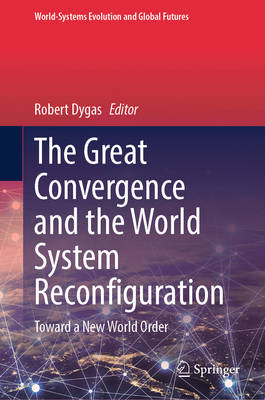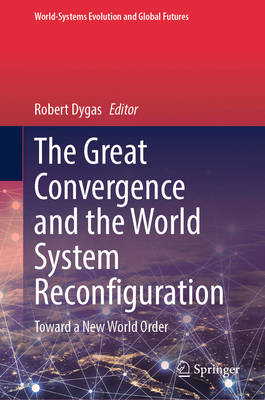
- Afhalen na 1 uur in een winkel met voorraad
- In januari gratis thuislevering in België
- Ruim aanbod met 7 miljoen producten
- Afhalen na 1 uur in een winkel met voorraad
- In januari gratis thuislevering in België
- Ruim aanbod met 7 miljoen producten
The Great Convergence and the World System Reconfiguration
Toward a New World Order
Omschrijving
For decades, the global balance of power has been shaped by a handful of dominant nations, primarily the United States and Western Europe. Yet, the rise of emerging powers like China, India, Brazil, and Russia is transforming the foundations of the world order. These nations are challenging the traditional dominance of the West, promoting a multipolar world, and reshaping international norms, trade networks, and geopolitical alliances.
This book explores the profound implications of this shift from a geoeconomic perspective, and the change of the geoeconomic paradigm, focusing on how these emerging powers influence global governance, economic policies, and security dynamics. It examines pivotal initiatives like China s Belt and Road Initiative, India s expanding global partnerships, and the role of BRICS in creating alternative financial systems to rival Western-dominated institutions such as the IMF and World Bank.
By analyzing the complex interplay of cooperation, competition, and confrontation between established and rising powers, the book sheds light on critical questions:
- How are emerging powers shaping the new geoeconomic paradigm?
- Can the Global South achieve lasting economic independence?
- What strategies can prevent escalating international conflicts?
- How will digital mobility evolve in a changing global economy?
Combining a deep analysis of foreign policies, hard and soft power strategies, and regional responses, this book provides readers with a nuanced understanding of how both traditional and emerging powers are forging new global and regional orders.
With its timely insights, this book is an essential resource for academics, policymakers, researchers, and anyone aiming to grasp the future of international relations in an era of transformation.
Specificaties
Betrokkenen
- Uitgeverij:
Inhoud
- Aantal bladzijden:
- 165
- Taal:
- Engels
- Reeks:
Eigenschappen
- Productcode (EAN):
- 9783031958298
- Verschijningsdatum:
- 26/08/2025
- Uitvoering:
- Hardcover
- Formaat:
- Genaaid
- Afmetingen:
- 165 mm x 237 mm
- Gewicht:
- 417 g

Alleen bij Standaard Boekhandel
Beoordelingen
We publiceren alleen reviews die voldoen aan de voorwaarden voor reviews. Bekijk onze voorwaarden voor reviews.








